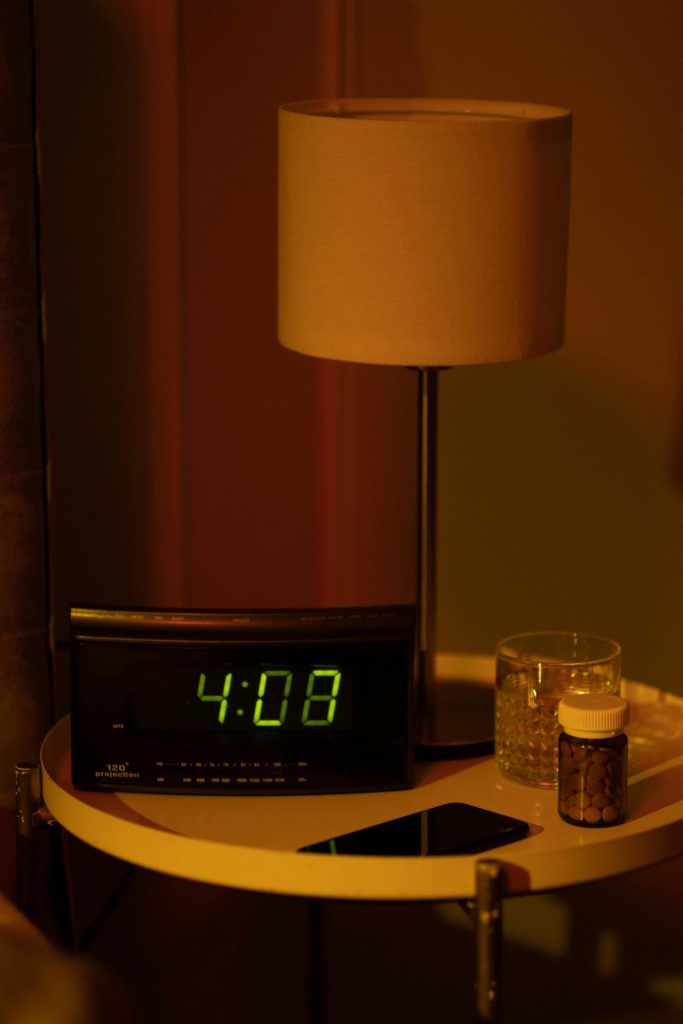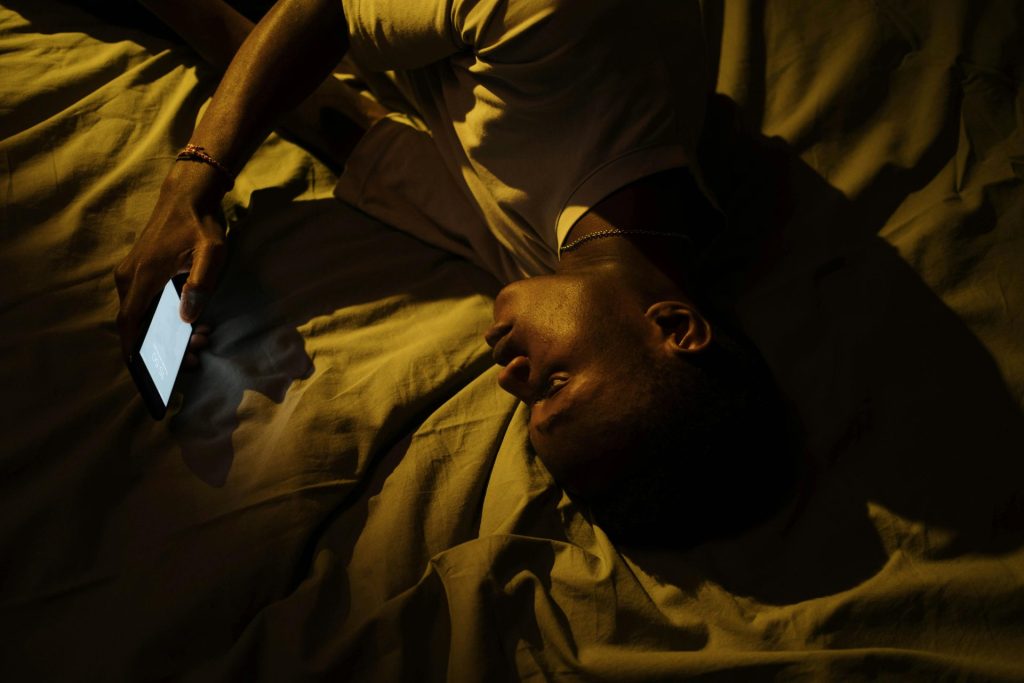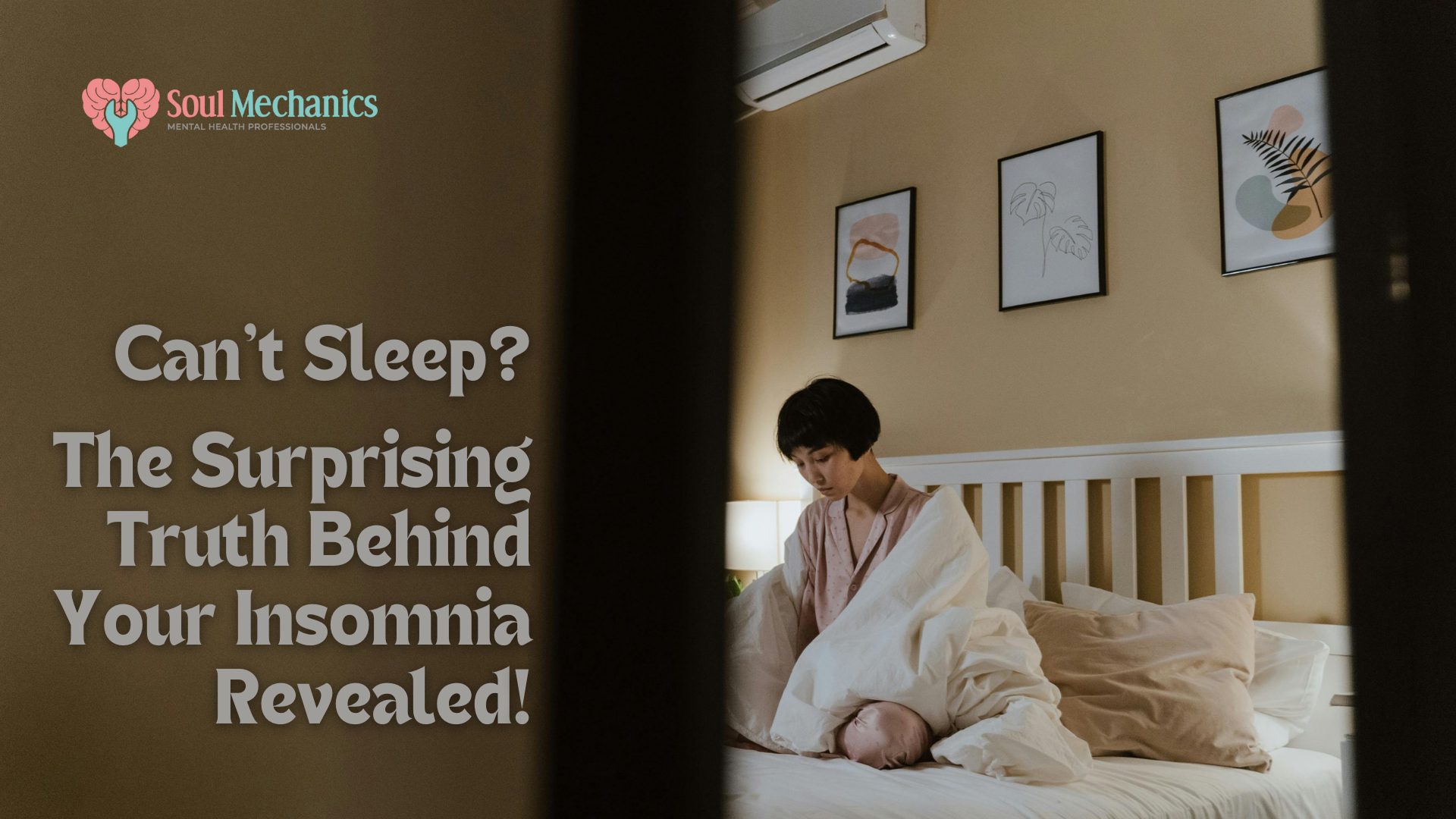Can’t Sleep? The Surprising Truth Behind Your Insomnia Revealed!
Can’t Sleep? The Surprising Truth Behind Your Insomnia Revealed!
Written By: Kelly Chan Jia Li, Clinical Psychologist (MAHPC(CP)00353)
Do you often find yourself staring at the ceiling, counting sheep, and wondering why sleep seems to evade you night after night? Or perhaps you experience the frustration of tossing and turning in bed, unable to drift off? If so, you're not alone. Many of us struggle with the relentless grip of insomnia, where sleep remains frustratingly out of reach. But what exactly is causing this nighttime battle?
Let's delve into the intricacies of sleeplessness in this article.

Understanding Insomnia
Insomnia isn't just about difficulty falling asleep; it's a sleep disorder that encompasses trouble falling asleep, staying asleep, or experiencing non-restorative sleep. Its manifestations vary, from struggling to initiate sleep at the beginning of the night to frequent awakenings or premature morning waking without being able to resume sleep.
Consider this scenario: You're finally in bed after a taxing day, yearning for a restful night's sleep. But the moment you close your eyes, your mind becomes a whirlwind of tomorrow's obligations or past mistakes. Hours pass, yet you remain wide awake, leaving you exhausted and irritable the next day.

If you’re looking for a therapist in Kota Damansara or Ipoh area, you can click here for more information.
Remember, seeking help is not a sign of weakness but strength!
The Why: Causes of Insomnia
Stress and Anxiety: The Mind's Tug of War
Imagine facing a looming deadline at work with escalating pressure. Your mind becomes a battleground of deadlines, emails, and tasks, making it nearly impossible to unwind come bedtime. You toss and turn, unable to silence the persistent worries that keep you awake. Whether it's relationship woes or work-related stressors, unresolved tensions hinder your ability to relax and achieve restful sleep.
Racing Thoughts: When Your Mind Just Would Not Keep Quiet
Have you ever felt physically drained yet mentally restless, as if your brain refuses to switch off? It's akin to participating in a mental marathon as you attempt to wind down for the night. You lie in bed, replaying conversations, fretting over the upcoming day, or obsessing over every detail of your past. These racing thoughts can hijack your relaxation efforts, leaving you staring at the ceiling in frustration.
Poor Sleep Hygiene: The Culprits Behind Sleeplessness
How many of us indulge in hours of screen time before bed? Or find ourselves ensconced in bed, binge-watching our favorite TV shows until the wee hours? If so, you're not alone—many share this habit. In today's fast-paced world, it's easy to neglect healthy sleep practices. Screen exposure before bed, irregular sleep schedules, and consuming caffeine or sugary snacks close to bedtime disrupt your body's natural sleep-wake cycle, making it challenging to settle down at night.

Sleep Environmental Disturbances: The Chaotic Sleeping Sanctuary
Visualize your bedroom. Is it a serene haven or a bustling metropolis? External factors like noise, light, and temperature significantly affect your sleep quality. Whether it's noisy neighbors, traffic, or bright room lighting, environmental disturbances disrupt your sleep, leaving you feeling unrested in the morning.
Physical Discomfort: Aches, Pains, and Not-So-Comfy Beds
Picture this: You're nestled under your blankets, ready to drift into dreamland when sudden pain jolts you awake. Whether it's a sore back, achy joints, or an uncomfortable mattress, physical discomfort sabotages your sleep. Finding a comfortable position becomes a challenge, and even minor aches or pains prevent you from achieving restorative sleep.
Mental Health Conditions: The Influence on Psychological Changes
Imagine someone you know sinking deeper into depression. As night falls, instead of relief, they dread the long, solitary hours ahead. Or consider recurring nightmares that haunt your sleep, leaving you drained the next day. Mental health conditions like depression, bipolar disorder, and PTSD are often linked to sleep disturbances. Disrupted sleep exacerbates these conditions, perpetuating a vicious cycle that's difficult to break.
Aging: Changes in Sleep Patterns
With age, sleep patterns naturally shift, leading to more fragmented and lighter sleep cycles in older adults. Waking up multiple times at night or rising earlier than desired becomes routine, leaving many older individuals fatigued and lethargic during the day.
Seeking Solutions: Tips for a Better Night's Sleep
While insomnia may seem like an insurmountable challenge, there are steps you can take to improve sleep quality. From practicing relaxation techniques and establishing consistent sleep routines to creating a comfortable sleep environment and limiting screen time before bed, small changes can yield significant improvements in your sleep patterns.
If you continue to struggle with sleep despite your efforts, feel free to Reach Out to our Kota Damansara and Ipoh branch for further information. Seeking help is a proactive step towards achieving better sleep.
Empowering Yourself for Better Sleep
In the quest for a good night's sleep, understanding the factors contributing to insomnia is paramount. Identifying the root cause of sleeplessness empowers you to take proactive steps towards better sleep hygiene. By making small adjustments to your routine and seeking support when necessary, you can bid farewell to sleepless nights and wake up feeling refreshed.
If you found this article informative, why not expand your knowledge further by exploring "Self-Compassion Practices"?
You can read the blog here.
For more mental health-related content, follow us on our official Instagram.

